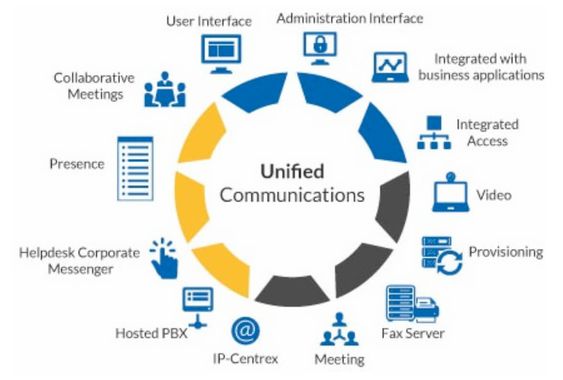Unified Communication
This is the integration of enterprise communication services such as instant messaging, presence information, voice (including IP telephony), mobility features (including extension mobility and single number reach), audio, web & video conferencing, fixed-mobile convergence, desktop sharing, data sharing (including web connected electronic interactive whiteboards), call control and speech recognition with non-real-time communication services such as unified messaging (integrated voicemail, e-mail, SMS and fax). Uc is not necessarilly a single product, but a set of products that provides a consistnt unified user interface and user experience across multiple device and media types.


In its broadest sense, the UC can encompass all forms of communications that are exchanged via a network to include other forms of communications such as Internet Protocol Television and digital signage Communications as they become an integrated part of the network communications deployment and may be directed as one-to-one communications or broadcast communications from one to many.

UC allows an individual to send a message on one medium and receive the same communication on another medium. For example, one can receive a voicemail message and choose to access it through e-mail or a cell phone. If the sender is online according to the presence information and currently accepts calls, the response can be sent immediately through text chat or a video call. Otherwise, it may be sent as a non-real-time message that can be accessed through a variety of media.
Advantages of Unified Communication
Grow Your Business
We Provide Solutions In a Blend of World Class Technology With Expertise and Experience

